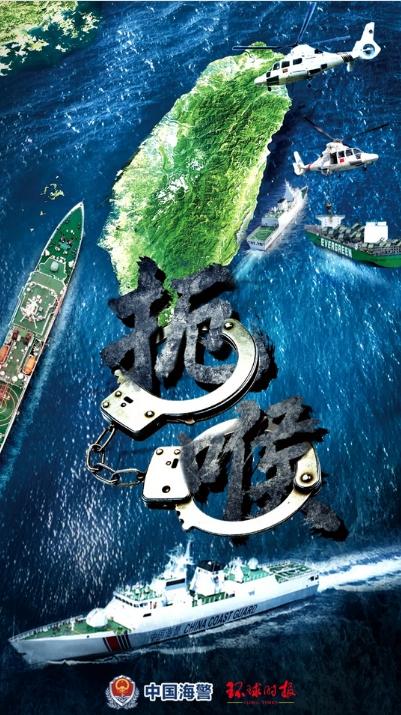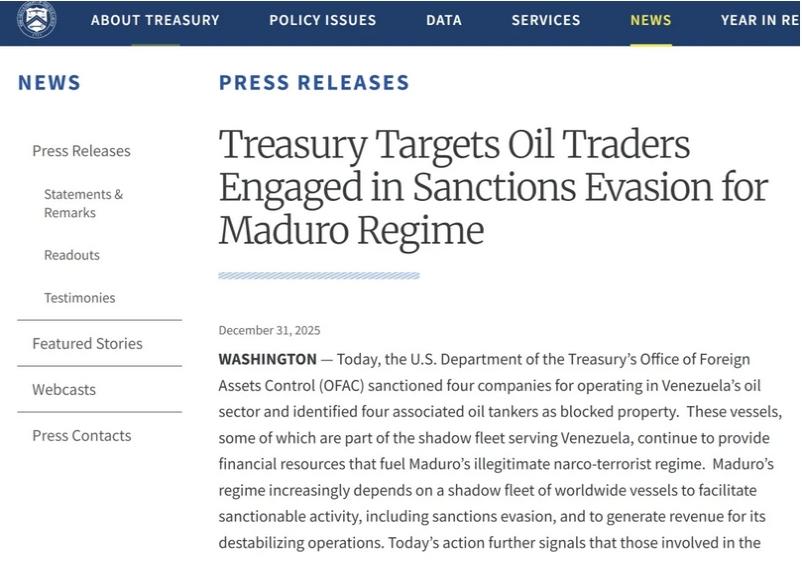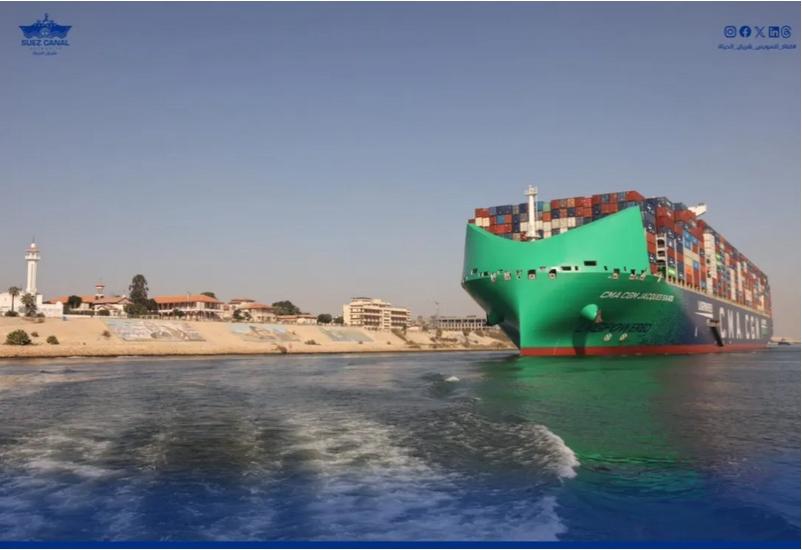 【摘要】本文通过对The“ Captain Stefanos”案和The "Saldanha"案的对比分析,简要说明一下在附加的停租条款下,针对特定的用词,为什么在海盗劫持期间租家有权利停租。
【摘要】本文通过对The“ Captain Stefanos”案和The "Saldanha"案的对比分析,简要说明一下在附加的停租条款下,针对特定的用词,为什么在海盗劫持期间租家有权利停租。【关键词】海盗、GOA、停租、OR
在The “Saldanha”案种,法官Gross作出了在海盗劫持期间租家无权停租;但在The“Captain Stefanos”案中,参照额外附加的停租条款,及特定的用词,法官Cooke作出了相反的判决:在海盗劫持期间租家有权利停租。
在两个案中,都是被海盗劫持,但法官Gross和法官Cooke作出了相反的判决;那么在这两个案中,区别又在什么地方?
那么先来简单看看 [2010] EWHC 1340-The “ Saldanha”案:
在该案中,船东Team-Up Owning Co.Ltd. 在2008年6月25日的时候把“Saldanha”轮以修改过带有附加条款的NYPE租约格式租给了租家。不幸的是,2009年2月22日该轮在过亚丁湾期间,被索马里海盗劫持,直到4月25日才被释放,5月2日回到和被劫持位置等效地点(equivalent position)。
租家主张被海盗劫持期间从2月22日到5月2日,船舶应该停租。鉴于海盗劫持不能归为共同海损事故所引起的扣押“Detention by averageaccidents to ship or cargo”,也不算是人员的不足和/或过错“Default and/or deficiency of men”,也不能归类于15条停租条款中的 “Any other cause”,任何其他(阻止船舶完全运作)的原因,法官Gross驳回租家诉求,同时认为海盗劫持是个classis example of a totallyextraneous cause,非常典型的完全是外部原因造成的例子,在海盗劫持期间租家无权停租。
其中租约第15条的停租条款描述如下:
" That in theevent of the loss of time from defaultand/or deficiency of men including strike of Officers and/or crew ordeficiency of… stores, fire, breakdown or damages to hull, machinery orequipment, grounding, detention byaverage accidents to ship or cargo, dry-docking for the purpose ofexamination or painting bottom, or byany other cause preventing the full working of the vessel, the paymentof hire shall cease for the time thereby lost…."
有必要一提的是,这里的any other cause,很多不可抗力条款也有此类字眼,都是指前面列举的同类条款。any other cause与any othercause whatsoever有显著区别,可以参Rix 法官在TheLaconian 案中的如下解释:
In my judgment it is well established thatthose words [i.e., 'any other cause'], in the absence of 'whatsoever', shouldbe construed either ejusdem generis or at any rate in somelimited way reflecting the general context of the charter andclause….A consideration of the named causes indicates that they allrelate to the physical condition or efficiency of either vessel (including its crew) or, in one instance, cargo. There is, moreover, thegeneral context ….that it is for theowners to provide an efficient ship and crew. In such circumstances it is to mymind natural to conclude that the unamended words 'any other cause' donot cover an entirely extraneous cause, like the boomin Court Line, or the interference of authorities unjustified by the condition (or reasonably suspected condition) of ship or cargo.Prima facie it does not seem to me that it can be intended by a standardoff-hire clause that an owner takes the risk of delay due to the interferenceof authorities, at any rate where that interference is something beyond thenatural or reasonably foreseeable consequence of some named cause.Where, however, the clause is amended to include the word 'whatsoever', I donot see why the interference of authorities which prevents the vessel performing its intended service should not be regarded as falling withinthe clause, and I would be inclined to say that that remains so whether or notthat interference can be related to some underlying cause internal to the ship,or is merely capricious. That last thought may be controversial, but it seems to me that if an owner wishes tolimit the scope of causes of off-hire under a clause which is deliberatelyamended to include the word 'whatsoever', then he should be cautious to doso."
在该案中,船东律师Baker主张船舶被外部原因导致被劫持是一个公认的危险,但租约第15条并没有包含这种危险。再则,法官Gross认为,租约第40条有专门针对劫持扣押而制定的条款,如下:
Clause 40 –Seizure/Arrest/ Requisition/ Detention
Shouldthe Vessel be seized, arrested, requisitioned ordetained during the currency of this Charter Party by any authority or at thesuit of any person having or purporting to have a claim against or any interestin the Vessel, the Charterers' liability to pay hire shallcease immediately from the time of her seizure, arrest, requisition ordetention and all time so lost shall be treated as off-hire until the time ofher release….
法官认为公平地讲,该条款逮捕劫持条款并没有扩展到海盗劫持,被劫持也许只是租家的不幸。但是,尽管如此,它并没有提供扭曲本租船合同第15条停租条款的意义的理由。
Plainly, however, cl. 40 did not extendto cover seizure by pirates. Perhapsthat is Charterers' misfortune but, be that as it may, it does not furnishjustification for distorting the meaning of cl. 15 of this charterparty.
如果一方在期租合同下想要把海盗劫持可以作为停租的事项之一的话,那么应该直截了当,更加清晰明显地订一个劫持条款或扣押条款;或者在any othercause这些词之后加上whatsoever。
Shouldparties be minded to treat seizures by pirates as an off-hire event under atime charterparty, they can do so straightforwardly and most obviously by wayof an express provision in a "seizures" or "detention"clause. Alternatively and at the very least, they can add the word"whatsoever" to the wording "any other cause", although this route will notgive quite the same certainty as it presently hinges on obiter dicta, albeit ofa most persuasive kind.
最终法官驳回租家上诉,在船被海盗劫持期间,租家无权停租。
At all events in this case, the various submissions advanced by Charterers fail, individually and cumulatively,to satisfy the burden of proof resting on them to come clearly within the wording of the off-hire provisions contained in cl. 15 of the charterparty. The appeal must therefore be dismissed.
I add only this. The issue of piracy istopical and, I suspect, of interest to the industry, so making this a suitablecase for crossing the threshold from the private realm of arbitration into apublic judgment at first instance. Accordingly, I have set the matter out at alittle length, even though, effectively, I have dismissed the appeal for thereasons given by the tribunal.
接下来再看看 [2012] EWHC 571-The “ Captain Stefanos”案:
在该案中,OsmiumShipping Corporation(以下简称“船东”)在2011年8月28日的时候,以修改过带有附加条款的NYPE46租约格式把巴拿马船 “Captain Stefanos”租给了CargillInternational SA(以下简称“租家”),执行一个意向到南非装货到地中海港口卸,意向意大利的航次期租合同。
2008年8月29日,租家发航次指示给船长,说从南非的Richards bay装煤,过苏伊士运河到意大利的Brindisi卸。
9月2日,该船交给租家;9月13日抵达Richards bay装货,于9月14日装完,共装了61,292吨煤。按租家指示,过苏伊士运河前往卸港,必须得经过印度洋及亚丁湾。
在9月21日左右,该轮被索马里海盗劫持;一直到12月6日左右,在船东交了一笔赎金之后,海盗放船。12月25日抵达第一卸港Baker,28日卸完,然后前往第二卸港PortoMarghera,29日抵达,2009年1月2日卸完。
在马耳他加完油后,租家于2009年1月5日还船给船东。
争议出现在,在2008年9月21日到12月6日被海盗劫持期间,租家是否有权停租。
租约相关条款如下:
"Clause 56-Off-hire
Should the vesselput back whilst on voyage by reason of any accident or breakdown, or in theevent of loss of time either in port or at sea or deviation upon the course ofthe voyage caused by sickness of or accident to the crew or any person onboardthe vessel (other than supercargo travelling by request of the Charterers) orby reason of the refusal of the Master or crew to perform their duties, or oilpollution even if alleged, or capture/seizure, or detention or threateneddetention by any authority including arrest, the hire shall be suspended fromthe time of the inefficiency until the vessel is again efficient in the same orequidistant position in Charterers' option, and voyage resumed therefrom. Allextra directly related expenses incurred including bunkers consumed duringperiod of suspended hire shall be for Owners' account."
因为之前已经有判例,在TheSaldanha案中,租家不可以依据租约第15条的停租条款来要求停租,双方对此都没有异议。
仲裁员认为,参照不同的租约,本租约第56条用了不同的言辞,不同的语法结构和不同的标点符号。仲裁员的认定,由于租约条款的语言和结构包括标点符号,俘获/劫持是一个停租事项准确无误。仲裁庭做出租家有权停租的裁决。
船东不服,提出上诉。
船东想依赖以下条款,声称租家无权停租。
Clause 16:
"…The act of God, enemies, fire,restraint of Princes, Rulers and People, and all dangers and accidents of theSeas, Rivers, Machinery, Boilers and Steam Navigation, and errors of Navigationthroughout this Charter Party, always mutually excepted."
Clause 26:
"Nothing herein stated is to beconstrued as a demise of the vessel to the Time Charterers. The owners toremain responsible for the navigation of the vessel, her seaworthiness,insurance, crew, acts of pilot and tugboats and all other matters, same as whentrading for their own account.
The Conwartime 2004 clause was, despitesome unhappy wording, accepted by the parties as incorporated into the charter.This provided:-
(a) For the purpose of this Clause, thewords:…(ii) "War Risks" shall include any actual, threatened orreported…acts of piracy…
(b) The Vessel, unless the written consentof the Owners be first obtained, shall not be ordered to or required tocontinue to or through, any port, place, area or zone (whether of land or sea),or any waterway or canal, where it appears that the Vessel, her cargo, crew orother persons onboard the Vessel, in the reasonable judgement of the Master and/orthe Owners, may be, or are likely to be, exposed to War Risks. Should theVessel be within any such place as aforesaid, which only becomes dangerous, oris likely to be or to become dangerous, after her entry into it, she shall beat liberty to leave it.
(c) The Vessel shall not be required toload contraband cargo, or to pass through any blockade, whether such blockadebe imposed on all vessels, or is imposed selectively in any way whatsoeveragainst vessels of certain flags or ownership, or against certain cargos orcrews or otherwise howsoever, or to proceed to an area where she shall besubject, or is likely to be subject to a belligerent's right of such and/orconfiscation.
(d) (i) The Owners may effect war risksinsurance in respect of the Hull and Machinery of the Vessel and their otherinterests (including, but not limited to, loss of earnings and detention, thecrew and their protection and indemnity Risks), and the premiums and/or callsthere for shall be for their account.
(ii) If the Underwriters of such insuranceshould require payment of premiums and/or calls because, pursuant to theCharterers' orders, the Vessel is within, or is due to enter and remain within,or pass through any area or areas which are specified by such Underwriters asbeing subject to additional premiums because of War Risks, then the actualpremiums and/or calls paid shall be reimbursed by the Charterers to the Ownersat the same time as the next payment of hire is due, or upon redelivery,whichever occurs first.
(e) If the Owners become liable under theterms of employment to pay to the crew any bonus or additional wages in respectof sailing into an area which is dangerous in the manner defined by the saidterms, then the actual bonus or additional wages paid shall be reimbursed tothe Owners by the Charterers at the same time as the next payment of hire isdue, or upon redelivery, whichever occurs first.
(f) The Vessel shall have liberty:
(i) To comply with all orders, directions,recommendations or advice as to departure, arrival, routes, sailing in convoy,ports of call, stoppages, destinations, discharge of cargo, delivery, or in anyway whatsoever, which are given by the Government of the Nation under whoseflag the vessel sails, or other Government to whose laws the Owners aresubject, or any other Government, body or group whatsoever acting with thepower to compel compliance with their orders or directions;
(ii) To comply with the order, directionsall recommendations of any war risk underwriters who have the authority to givethe same under the terms of the war risks insurance;
(iii) To comply with the terms of anyresolution of the Security Council of the United Nations, the effective ordersof any other Supranational body which has the right to issue and give the same,and with national laws aimed at enforcing the same to which the Owners aresubject, and to obey the orders and directions of those who are charged withtheir enforcement;
(iv) To discharge at any other port anycargo or part thereof which may render the Vessel liable to confiscation as acontraband carrier;
(v) To call at any other port to changethe crew or any part thereof or other persons on board the Vessel when there isa reason to believe that they may be subject to internment, imprisonment or othersanctions.
(g) If in accordance with their rightsunder the foregoing provisions of this Clause, the Owners shall refuse toproceed to the loading or discharging ports, or any one or more of them, theyshall immediately inform the Charterers. No cargo shall be discharged at anyalternative port without first giving the Charterers notice of the Owners'intention to do so and requesting them to nominate a safe port for suchdischarge. Failing such nomination by the Charterers within 48 hours of thereceipt of such notice and request, the Owners may discharge the cargo at anysafe port of their own choice.
If in compliance with any of theprovisions of sub-clauses (b) to (g) of this Clause anything is done or notdone, such shall not be deemed a deviation, but shall be considered as duefulfilment of this Charter Party."
船东抗辩说根据该条款,租家不可以安排船舶去战争危险区除非船东书面同意,而且租家还得支付任何额外的战争险保费和船员奖金,如果船舶进入该区的话。依据第(f), “或任何其他政府、团体或团体,有权强制遵从其命令或指示。”,船东认为这句也包含了海盗的命令或指示,因此不能被认为有绕航,只是在履行租约。遵从该命令或指示并没有导致发生可以停租的事项。再则,CONWARTIME条款,已经分配了海盗风险,由租家来承担;不管命令或指示是不是来自海盗,按照该条款的任何条文,都应该视为租约的适当履行;因此和停租条款没有任何关系。
In the context of the Charter as a whole, theConwartime 2004 clause specifically deals with War Risks, which expresslyinclude "actual threatened or reported" acts of piracy. This does nothowever purport to be an off-hire clause. It sets out the rights, liberties andobligations of the parties in the circumstances set out, where the Vessel mightbe exposed to such War risks, including piracy. Under itsterms, the Charterers are not to order the Vessel to go to War Risk Zonesunless the Owners agree in writing and the Charterers are then to pay any extraWar Risks Insurance premia and crew bonuses earned, should the Vessel entersuch zones.
Sub-clause (f)entitles the Owners to comply with the resolutions of the UN Security Council,orders of supranational bodies and national laws to which they are subject (subclause(iii)), to comply with the orders or recommendations of War Riskunderwriters (sub clause (ii)) and to comply with the orders, recommendationsand advice given by the Government of the Flag Nation, any other Government towhose laws the Owners are subject, "or any otherGovernment, body or group whatsoever acting with the power to compel compliancewith their orders or directions."
The Owners submitted that this latter phrase included the orders ofpirates and that, in consequence, sub clause (h) had the effect that compliancewith such orders was deemed not to be a deviation but "due fulfilment ofthe Charterparty". It followed, they said, that an off-hire event couldnot arise from obeying such orders.
Moreover Owners submitted that the ConwartimeClause had the effect of allocating to the Charterers all risks of piracy. Theycontended that it made no sense for the Owners to be at liberty to comply withsuch orders from pirates, but for the Vessel to be off-hire during such aperiod of compliance. Whether the Vessel was seized by pirates who operated theVessel or by pirates who ordered the Vessel to comply with their orders to deviate,the Conwartime clause was apt to put all the risks of that upon the Charterers.The Owners were deemed to have fulfilled their obligations under the Charterand they must be deemed to have fulfilled the service required at the time, with theconsequence that the off-hire clause was not engaged at all.
船东引援Clarke勋爵在Rainy Sky SA v KookminBank [2011] 1WLR 2900 案中,最高法院的判决,他强调需要一个特定的架构和迭代的方法,通过对合同的其它条款和商业后果来对竞争对手的含义进行核对。Clarke勋爵认为,当事人所使用的语言往往具有多个潜在意义,如果当事人使用了明确语言,那么法院必须遵从;如果条款中有多于一种的解释,那么需做出与商业常识相一致的解释。
The language used bythe parties will often have more than one potential meaning. I would accept the submission made onbehalf of the appellants that the exercise of construction is essentially oneunitary exercise in which the court must consider the language used andascertain what a reasonable person, that is a person who has all the backgroundknowledge which would reasonably have been available to the parties in thesituation in which they were at the time of the contract, would have understoodthe parties to have meant. In doing so, the court must have regard to all therelevant surrounding circumstances. If there are two possible constructions,the court is entitled to prefer the construction which is consistent withbusiness common sense and to reject the other ... Where the parties haveused unambiguous language, the court must apply it ... As stated ina little more detail in Para 21 above, it is in essence that, where a term of acontract is open to more than one interpretation, it is generally appropriateto adopt the interpretation which is most consistent with business commonsense.
船东抗辩说租约,作为一个整体,特别是CONWARTIME条款,租家得承担海盗风险,而不再是船东。而且停租条款需参照商业目的及分配风险来解读。
The Owners submitted that the Charterparty,taken as a whole, particularly when regard was had to the Conwartime Clause,placed the risk of piracy upon the Charterers and not upon the Owners and thatthe off-hire clause had to be read with this business purpose and allocation ofrisk in mind.
租船合同中的停租条款,不一定符合租约中其它条款的规定,它与一方或另一方的违约责任有关。租约中可以规定除非船东违约,要不就不能停租;然而船东和租家也可以在租约中加入一些条款,并不是租约双方造成的,比如受相关当局影响而造成的一些可以停租的事项加以明确规定。如Staughton勋爵在 The Berge Sund 案中如下说法:
A charter party might provide that the Vesselwould remain on hire except during delay caused bybreach of contract on the part of the owner; or it might provide that thevessel should be off-hire in the event of delay, unless caused by breach ofcontract on the part of the Charterers. Either solution would provide a rulethat was tolerably clear and workable. But those who make charterparties prefersomething more complicated. They provide for a vessel to be off-hire in someevents which were not a breach of contract by either party for example,interference by authorities in the present case. As is fashionable nowadays,the clause is said to deal with allocation of risks. The only general rule thatcan be laid down is that one must consider the wording of the off-hire clausein every case.
法官Cooke认为同时也要牢记在心,如租家的抗辩,标准的租约条款中通常还带有一些附加条款,而这些经常使用的附加条款并不总是完美地结合在一起。可能有一个或多个涉及到停租事件,必须一起综合看待。在解释停租条款的时候,最重要的是确定是否已经发生了停租事件。
It is also to beborne in mind, as the Charterers submit, that standard form charterparties areoften used with a series of "add-on" special clauses which do notalways fit together immaculately or happily. Where there are one or moreclauses which deal with off-hire events, they must clearly be looked attogether and reconciled but where the Charter provides for off-hire in someprovisions and charterparty obligations and remedies for breach in others, thefocus must inevitably be upon the off-hire clauses when determining whether anoff-hire event has occurred.
法官Cooke认为许多权威已经表明,除非租家能能把那些事引入到停租条款可扣除的情况,要不租金得一直连续不间断支付。对于除外事项有模糊的地方将作出对船东有利的解释。
As many authorities state, hire is payablecontinuously unless the Charterers can bring themselves within an exception,the onus being on the Charterers to do so. Doubt as to the meaning ofexceptions is to be resolved in favour of the Owners.
最基本的原则,在解释租约条款的时候,除非能租家能把他引入到停租条款,要不就需为使用船舶支付租金。此外条款中模糊的字眼将对船东有利,因为租家想扣租,可参法官Bucknill如下解释:
The cardinal rule…in interpreting such a charter-party asthis, is that the charterers will pay hire for the use of the ship unless hecan bring himself within the exceptions. I think he must bring himself clearlywithin the exceptions. If there is a doubt as what the words means, then Ithink those words must be read in favour of the Owners because the charterersis attempting to cut down the Owners’ right to hire.
但是法官Cooke认为,第56条条款中其措辞的使用,该条款的结构,标点和语法都明确支持租家的抗辩。“捕获/扣押”一词是独立的,并构成一个单独的停租事项,除了“被任何权力机关拘留或威胁拘留,包括逮捕”。
In my judgment, the wording used, the structure of the clause, itspunctuation and its grammar all clearly support the Charterers' submissions.When regard is had to the various events of off-hire which are set out, the useof the word "or", the linkage of "capture" with"seizure" by the use of an oblique stroke, and the positioning of thecommas, the clause to my mind clearly sets out that it is only "detentionor threatened detention" which is qualified by the expression "by anyauthority". The words "capture/seizure" are free standing andconstitute a separate head of off-hire, quite apart from "detention orthreatened detention by any authority including arrest".
该条款可以分为两部分,前面两个是船舶摆放到原位;其余的是在港口,海上或航行途中,导致有时间损失的,可以停租的事项。可分以下A和B两个部分:
(A) 摆放到原位 A1:意外事件;A2 机器故障。
(B) 不管是在港口或海上或航行途中导致有时间损失的可以停租的事项 B1船员或其它在船人员生病或事故,B2 船长或船员拒绝履行其职责,B3或即使是声称的油污,B4或俘获/劫持,B5或任何权利机关的扣押或者是威胁扣押包括拘留。
The clause can bebroken down into a number of distinct off-hire events, the first two of whichrefer to the position where the Vessel "puts back". The balance ofthe named off-hire events are those which occur in port, at sea or in the course of the voyage where "loss of time"is caused thereby. The Charterers analyse the clause in this way:-
"(A) Should the vessel putback whilst on voyage by reason of any (A1) accident or (A2) breakdown, (B) orin the event of loss of time either in port or at sea or deviation upon thecourse of the voyage caused by (B1) sickness of or accident tothe crew or any person onboard the vessel (other than supercargo traveling byrequest of the Charterers) or (B2) by reason of the refusal ofthe Master or crew to perform their duties, (B3) or oil pollution even if alleged, (B4) orcapture/seizure, (B5) or detention or threatened detention byany authority including arrest, the hire shall be suspended from the timeof the inefficiency until the vessel is again efficient in the same orequidistant position in Charterers' option, and voyage resumed therefrom. Allextra directly related expenses incurred including bunkers consumed duringperiod of suspended hire shall be for owners' account."
法官认为,该条款的构成,在备注的B之后,无论是逗号其设置的原因,对于租金的损失,每个事件都用分开的“或”。因此该条款可以分为5-6个分开独立的事项,如果有时间损失则可以停租。
The structure of theclause, from B onwards, regardless of commas, setsout causes of loss of hire, with each separated by the word "or". Thereare five such clauses or six, if "threatened detention" is readseparately from "detention". Thus the clause provides that "inthe event of loss of time"….. "caused" "by sicknessof"…. "or by any refusal"…. "or oil pollution orcapture/seizure or detention or threatened detention by any authority"…the hire shall be suspended.
再者,被海盗劫持,如果没有给船舶任何指示,不属于CONWARTIME第(f)条。因为没有命令,没有逻辑去区分海盗自己操作船舶还是海盗命令船员为他们操作。船东认识到这一点,但这也妨碍了船东的论点,同时证明了CONWARTIME条款并不影响到停租条款。
Moreover, a seizure by pirates, without giving any orders to the ship,would not fall within sub clause (f) in the Conwartime clause at all, becauseof the absence of orders, and there is no logic in a distinction betweenpirates operating the Vessel themselves and pirates ordering the crew tooperate the Vessel for them. The Owners recognised this but the point militatesagainst their argument and demonstrates that the Conwartime clause does notimpact on the off-hire provisions.
Nor can the Conwartime Clause be taken asan all-embracing allocation of risk of piracy to the Charterers, so as toaffect the construction of the off-hire clause, as the Owners suggest. The off-hireclause deals specifically with capture, seizure and detention. The ConwartimeClause, on the Owners' construction would negate not just a seizure by piratesbut a capture by an enemy as an off-hire event. Yet clause 56 specifically setsout the events which are to qualify as off-hire events and that clause, initself, is the allocation of the risk between the parties where hire isconcerned. The Conwartime Clause does not deal with hire and off-hire, butallocates risks for additional costs if the Vessel goes to a War Zone (if theOwners agree) or provides for the Owners' right to refuse to go and liberty totake various steps in the circumstances referred to.
租家解释逗号不仅仅只是一个逗号,“点一点”,但对该条款的语言,其语法形式,和“或”在段落中的使用情况,有其针对性的目的。法官认为逗号原用于条款文字的意义明显,结合给定的结构和语法的使用,显然逗号是重要的,但船东的解释试图忽略它,以及这些法官提到其他因素。
32. There is therefore nothing in Clause56, nor in the Charterparty as a whole which could provide the contra-indications that the Owners suggest to what, to mymind, is the plain and obvious meaning of the words used in the clause, giventhe structure and syntax used. The Charterers' construction does not turnsimply on a comma, "a jot or a tittle", but upon the whole languageof the clause, its grammatical form, and the usage of the word "or"throughout it, in a purposeful manner. The comma is however significant and theOwner's construction seeks to ignore it, as well as these other factors towhich I have referred.
法官认同仲裁员的裁决,参照不同的租约,本合同用了不同的言辞,不同的语法结构和不同的标点符号。仲裁员的认定,由于租约条款的语言和结构包括标点符号,俘获/劫持是一个停租事项准确无误。租家的解释是对的,他们已经解除他们的责任,成功把自己引入到这条停租条款的停租事项中。
最终法官驳回船东上诉。
There was no issue between the parties that the word "seizure"covered any "forcible possession" of the ship and was apt to includehijacking by pirates unless the words were qualified by the further words"by any authority", which appear later in the clause. Reference toother charterparties where different words, different grammatical constructionsand different punctuation were used, does not assist. The Arbitratorsconcluded, at paragraph 13 of their Reasons, that, in their view, it was clearthat the relevant off-hire event was the "capture/seizure" of theVessel and that such a seizure need not be carried out by any authority. Theyreached that conclusion because of the language and construction of the clause,including its punctuation, after considering all of the arguments raised by theOwners in the arbitration. Many of those arguments have been redeployed, withsome additional submissions, but I am as clear as the Arbitrators were, thatthe Charterers' construction is right and that the Charterers clearly bringthemselves within the clause, discharging the onus of showing, on the agreedfacts, that there was an off-hire event.
This appeal must therefore be dismissed, with costs, unless there arepeculiar issues of costs about which I am unaware, upon which the parties can,if necessary, address me.
分析:
在这两个案中,共同点是在期租合同下,船舶被海盗劫持了;均不可以依赖租约标准的第15条停租条款,对海盗劫持期间的时间损失来要求停租。区别的地方是,租约中的附加条款, [2010] EWHC 1340-The “ Saldanha”案中的第40条和[2012] EWHC 571-The “ Captain Stefanos”案中的第56条。两条款存在细微差别,但却导致了截然相反的判决。
两条款如下:
Clause 40 – Seizure/Arrest/ Requisition/Detention
Should the Vessel be seized, arrested,requisitioned or detained during the currency of this Charter Party by anyauthority or at the suit of any person having orpurporting to have a claim against or any interest in the Vessel, the Charterers' liability to payhire shall cease immediately from the time of her seizure, arrest, requisitionor detention and all time so lost shall be treated as off-hire until the timeof her release….
及
Clause 56- Off-hire
Should the vessel put back whilst onvoyage by reason of any accident or breakdown, or in the event of loss of timeeither in port or at sea or deviation upon the course of the voyage caused bysickness of or accident to the crew or any person onboard the vessel (otherthan supercargo travelling by request of the Charterers) or by reason of therefusal of the Master or crew to perform their duties, or oil pollution even ifalleged, or capture/seizure, or detention or threatened detention by anyauthority including arrest, the hire shall be suspended from the time of theinefficiency until the vessel is again efficient in the same or equidistantposition in Charterers' option, and voyage resumed therefrom. All extradirectly related expenses incurred including bunkers consumed during period ofsuspended hire shall be for Owners' account.
在The “ Saldanha”案中,法官Gross认为逮捕劫持条款并不能扩展到海盗劫持,因此租家无权要求停租。
按法官Cooke对条款的拆析,笔者认为第40条可以标注如下:
(A) 相关权利当局造成的A1 seized; A2 arrested; A3 requistionned; A4 detained
(B) 任何其它人对船舶有索赔或有利益关系造成的
这样一来,就可以很好理解为什么法官Gross认为海盗劫持并不能算是第40
条款中的情况,因为海盗并不能算是相关权利当局。这些权利当局可以是政府、法院、ITF、PSCO、USCG等等,但海盗组织不算。
此外,最重要的差异似乎是在The “ Captain Stefanos”案中的第56条描述事项多了个or。
先来简单了解一下,顿号、逗号、分号三者的关系:这三个符号都用在句子的中间表示停顿。它们之间的主要区别有三:一从停顿的时间看,顿号最短促,逗号其次,分号最长;二从是否表示并列来区别。顿号表示词和词之间的并列,分号表示分句与分句之间的并列,而逗号表示连贯,没有并列的意思;三从分号使用中的一些规律来区别。顿号表示词和词之间的并列,分号表示分句与分句之间的并列,逗号表示连贯,没有并列的意思。
而or(或者)则用以连接同义词、同义语、说明语或修饰语等。也就是法官Cooke认为的,“or”及逗号可以把该条款的停租事项分为了B1-B5等5种情况。
“Or”成功把(B4) 中的capture/seizure这种情况和 (B5)中的detentionor threatened detention by any authority including arrest 情况分开,表示为两种不同的可以停租的事项。
总结:
笔者在刚毕业跑船的时候,菲律宾船长对我讲过,“One should always think in advance”;成功登陆后,法律部经理讲过大意是如此的话,“发生任何扣租的事情,首先无论如何先反对,然后找理由去证明租家扣租是非法的。”以及碰到一个能注意到每一个词每一个标点符号用法的高层领导。笔者提及这个事,只是想说明,做任何事情,首先都要考虑周全,比如在恰定租约的时候,想清楚自己要表达什么;然后注意到租约中的每一个细节,哪怕一个用词或一个标点符号。在发生争议之后,那么就要据理力争,找充分的理由去证明对方错了;而不能什么事情都没做没查就认为对方对的。
海运圈聚焦专栏作者 Alex (微信公众号 航运佬)

 2017-04-17
2017-04-17 1146
1146 














